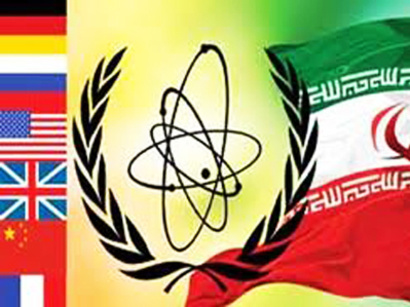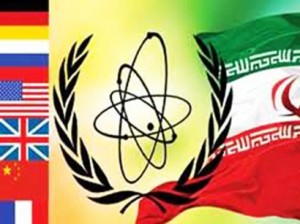
Update: Negotiations on Iran’s Nuclear Program
 Yesterday, the Senate Foreign Relations Committee held a hearing providing an update on the P5+1’s negotiations with Iran over its nuclear program. Under Secretary of State for Political Affairs, Wendy Sherman, contributed the progress made to a combination of “tough diplomacy” and the most comprehensive targeted sanctions regime ever imposed on a country.
Yesterday, the Senate Foreign Relations Committee held a hearing providing an update on the P5+1’s negotiations with Iran over its nuclear program. Under Secretary of State for Political Affairs, Wendy Sherman, contributed the progress made to a combination of “tough diplomacy” and the most comprehensive targeted sanctions regime ever imposed on a country.
On January 20, 2014, the implementation of the Joint Plan of Action, known as JPOA, marked the first time in a decade that Iran agreed to specific actions to halt the progress of its nuclear program, as well as to roll it back in key areas. As a result, the International Atomic Energy Agency (IAEA) verified on that day that Iran had indeed stopped producing near-20% enriched uranium, disabled the configuration of the centrifuge cascades needed to produce it, and began diluting its existing stockpile at a rate that will have eliminated all of its near-20% enriched uranium by the end of the 6 month interim agreement window. Moreover, they have stopped installing additional centrifuges at the Natanz and Fordow nuclear facilities. There have also been no additional reactor components installed at the Arak facility.
However, there is still much work to be done. According to Undersecretary Sherman, the IAEA will roughly double the size of its inspection teams and install additional monitoring equipment in order to carry out its responsibilities. The increased size of the teams and the access afforded under the JPOA will significantly enhance the international community’s insight into Iran’s nuclear program.As the President said in his State of the Union Speech, “these negotiations do not rely on trust; any long-term deal we agree to must be based on verifiable actions and constraints that convince us and the international community that Iran is not building a bomb”.
Furthermore, in Chairman Menendez’s opening remarks, he stated:
“I am convinced that we should only relieve pressure on Iran in exchange for verifiable concessions that will fundamentally dismantle Iran’s nuclear program; not by a month or two, but by a year or more, and that it be done in such a way that alarm bells will sound from Vienna to Washington, should Iran restart its program anytime in the next 20 to 30 years.”
It remained evident that the Senate Foreign Relations Committee shares the same goal in regards to Iran; it must be prevented from obtaining a nuclear weapon. They also agreed that a strong and crippling sanctions regime imposed by Congress and enforced by the Administration has been crucial in getting Iran to the negotiating table. However, uncertainty still remained and was well noted as the hearing progressed.
“Everyone throughout the world would desire if there is a diplomatic alternative, a diplomatic path to a non-nuclear Iran, that we pursue that path; whatever the chances of success, that we pursue that path. While we both want these things, a non-nuclear Iran and a preferred diplomatic resolution to this thorny question rather than a military one, we have differences in tactics. And that’s to be understood, they’re good faith differences.” – Senator Tim Kaine
The Ranking Member, Senator Bob Corker, raised various concerns regarding the JPOA and Iran’s economy. Regarding the JPOA, he asked Undersecretary Sherman why the issues of delivery mechanisms, such as ballistic missiles, and the militarizing of nuclear warheads were not initially addressed within interim deal. She then reiterated the fact that the JPOA is seen as a first step that sets up the framework towards the final, comprehensive deal. Because it is just a first step, the gaps that may currently exist are not considered loopholes for Iran. She then talked about how the issue of ballistic missiles will indeed be a part of the final agreement because of the current United Nations Security Council resolutions that include them.
“If we are successful in assuring ourselves and the world community that Iran cannot obtain a nuclear weapon, then them not having a nuclear weapon makes delivery systems almost, not entirely, but almost irrelevant.” – Undersecretary Sherman
Senator Corker then raised his concerns about Iran’s improving economy and whether or not the JPOA and negotiations are allowing the breathing room for this to happen. He asked about Iran’s inflation going down and the currency going up, as well as the projection of the economy, along with the concern of “rolling interim deals” with Iran, foreign counterparts, and the private sector.
The U.S. Department of Treasury’s Undersecretary for Terrorism and Financing, David Cohen, noted that there was an “uptick” in the economy after the election of President Rouhani, but that there have been essentially no changes regarding the inflation rate or value of the currency since the JPOA. He said that the reflections of any business related conversations taking place are about what may come in the future, not today, as the nature of the relief to Iran is limited, targeted, and reversible, and that there is continued robust enforcement of sanctions.
“We are as crystal clear as possible in all of our engagements that if these talks turn into something more; if these talks turn into deals that violate the elaborate sanctions that remain in place, we will take action.” – Undersecretary Cohen
However, Undersecretary Sherman added that the interest in doing business with Iran in the future puts more pressure on its negotiators to make good on the JPOA and in reaching a final deal.
Other concerns that the Senators raised included human rights, terrorism, regional issues, and the fact that there are still American citizens being detained in Iran; Saeed Abedini, Amir Hekmati, and Robert Levinson.
“Even as we pursue negotiations of a comprehensive solution on Iran’s nuclear program, we will not relax our efforts to hold Iran accountable for its human rights violations and abuses, support for terrorism, and interference across the region.” – Undersecretary Sherman
Lastly, in Undersecretary Sherman’s testimony, she stated that claims of the JPOA weakening the current unprecedented sanctions regime are false. The core architecture of the sanctions remains in place, and the relief that Iran was granted through the JPOA was “explicitly and intentionally” tailored to maintain pressure and our ability to negotiate towards a comprehensive solution. It is also important to realize that sanctions have been effective because everyone in the international community has complied and come on board with us. If we impose more sanctions now, unilateral sanctions, they will not only undermine the agreements made within the JPOA, but will not have the international support needed to be effective.
“One final issue to keep in mind with regards to the comprehensive solution, is that under the terms of the joint plan, we have agreed with Iran that the comprehensive solution will be part of an integrated whole, where nothing is agreed until everything is agreed. What is also important to understand is that we remain in control over whether to accept the terms of a final deal or not. We have made it clear to Iran that if it fails to live up to its commitments, or if we are unable to reach an agreement on a comprehensive solution, we would ask Congress to ramp up new sanctions immediately. “
 Nathan Daniels is a Research Assistant & Intern at the American Security Project covering nuclear security issues.
Nathan Daniels is a Research Assistant & Intern at the American Security Project covering nuclear security issues.
More on this issue from Nathan:
5 Reasons Why More Sanctions Should Not be Imposed on Iran at This Time






[…] Update: Negotiations on Iran’s Nuclear Program […]
[…] Update: Negotiations on Iran’s Nuclear Program […]
[…] Update: Negotiations on Iran’s Nuclear Program Nathan Daniels […]